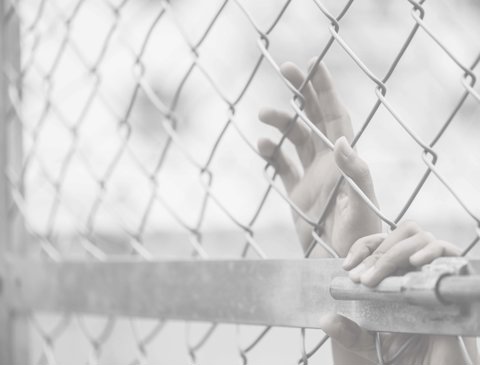NRM Determined MN Isn’t a Victim of Trafficking
MN came to the UK in February 2013. She gave an account to the Home Office which contained numerous indicators that she was a victim of trafficking, including that she had been forced to work as a prostitute in Italy. She was referred to the National Referral Mechanism (‘NRM’) for victim identification and protection. The Home Office made a reasonable grounds decision in her favour on 21 March 2013, but later concluded she was not a victim that same year. This was reconsidered on 7 August 2017. The Home Office maintained that MN was not a victim of trafficking.
This was challenged by way of judicial review in the High Court. Farbey J dismissed the claim in the High Court on 29 November 2018. Permission to appeal was granted on 31 January 2020. The Appellants appealed on three grounds: (1) that the standard of proof for ‘Conclusive Grounds’ decision was unlawfully set at the balance of probabilities in breach of Article 4 ECHR; (2) that the Home Office erred in its approach to considering medical and other expert evidence in support of the Appellants’ claims to be victims of trafficking; (3) that the Home Office took the wrong approach to assessing their credibility.
Appeal Outcome
The Court of Appeal carried out a detailed review of the existing jurisprudence on the relevance of and weight to be afforded to medical and other expert evidence and laid down detailed guidance on the correct approach (paras 121-123 of the Judgment), finding the Home Office’s summary rejection of the careful expert evidence submitted on behalf of the Appellants as formulaic and lacking in analysis of their specific relevance.
On credibility, the Court of Appeal criticised the Home Office guidance for treating known difficulties that trafficked victims have in giving their account (such as impact of trauma, mistrust of authorities and feelings of shame) as ‘mitigating circumstances’, as such an approach wrongly directs decision-makers to first identify defects in the victim’s account and then considers whether they can be excused for the defects. The Court of Appeal found this to be over-mechanistic and not reflective of the real nature of the victim identification process.
Although the Court of Appeal dismissed the Appellants’ challenge to the standard of proof for ‘Conclusive Grounds’ decisions, its guidance on the approach to medical and other expert evidence and to victim credibility has brought important clarity to the law on victim identification.
The Appellants were represented by Raza Husain QC of Matrix Chambers, Shu Shin Luh of Doughty Street Chambers and Ronan Toal of Garden Court Chambers. The AIRE Centre and Anti-Slavery International intervened in the case. IXU was represented by Imogen Townley of Wilson Solicitors LLP.
The judgment is available here: https://www.bailii.org/ew/cases/EWCA/Civ/2020/1746.html
What is Trafficking?
Human trafficking is a form of slavery where people are illegally transported somewhere (often, but not necessarily across an international border), where they are forced into doing something for the gain of the traffickers.
Victims of trafficking may be forced into work, sexual exploitation, crime, organ harvesting, and marriage. They often become reliant on their traffickers and sometimes victims may be encouraged to take drugs, so they are dependent on their supply, which leaves them trapped.
While children and women are more at risk of being victims of trafficking, it can happen to anyone regardless of their age, gender, or background. Vulnerable people are often targeted.
What Happens to Victims of Trafficking
No two cases are the same. If you are not sure whether you have been trafficked and something doesn’t feel right, here are some things to look out for.
Promises of a Better Life
You may have me someone in person or online and they started making promises of offering you a better life.
Your trafficker may have promised you a great job that will change your life but when you got there, it didn’t match your expectations and you were exploited. Or they may have offered you a relationship and marriage, but once you committed the reality of the situation was very different.
Forced into Work
You may have been forced to work extremely long hours with very little breaks. You may also have received no payment for your work, or very little, and your trafficker pocketed the rest. Your trafficker may make excuses as to why you were not paid, such as covering the cost of your accommodation and food. You might also be forced into sexual activities.
No Freedom
You may have experienced the removal of your passport and any other identification. The trafficker may claim that you owe them money and you are in debt to them, so you must work to pay it off before you can leave. The debts may be for accommodation, food, or travel.
You may also not have the freedom to go anywhere outside of your accommodation unaccompanied.
Challenging trafficking decisions
If you have received a negative trafficking decision (reasonable grounds or conclusive grounds), you have only three months to challenge this through judicial review proceedings, so it is important that you seek legal advice as soon as possible.
We can also assist with potential challenges to any failure to provide you with appropriate accommodation and support that you are entitled to, to assist you with your recovery or with any challenges to being forced to live in accommodation in an area where you are unsafe or away from your support network.
We can also assist with challenges to refusals to grant you temporary permission to stay as a victim of human trafficking.
Claiming Compensation for Victims of Trafficking
You may be able to bring a claim for compensation against your traffickers and/or against the Home Office or police for failures to protect you. Our specialist Human Rights lawyers can assist with this.
You may also be able to make a claim to the CICA (Criminal Injuries Compensation Authority) which has a scheme that allows victims of trafficking in the UK to seek compensation.
If you have been a victim of trafficking and sustained physical or mental injuries, our specialist Abuse solicitors may be able to help you claim compensation for your physical and emotional trauma. You can claim compensation if you have experienced:
- Physical assault
- Child abuse
- Sexual abuse
- Threats of violence
- Domestic violence
Financial Help with Your Compensation Claim
If you have been a victim of human trafficking, you can make an application for Legal Aid. Legal Aid will help to cover the cost of any legal and court costs that you incur. If you are not sure on how to apply for this, we can help to support your application.

How Simpson Millar Can Help Trafficking Victims
Every individual is different and trafficking cases are often very complex. When it comes to getting recognised as a victim of trafficking, the legal system isn’t as robust as it should be.
If you have escaped trafficking, there are several ways that the UK law can help to protect you and keep you safe.
Our experts have extensive experience helping clients who have been trafficked by assisting with processes that improve their lives.
We are fully committed to working with you sensitively to make sure that your legal rights are protected and upheld.
Here at Simpson Millar, we make sure that our clients get the support they need and are entitled to by:
- Signposting to support services
- Assisting with safe accommodation
- Pursuing compensation claims
- Protecting your right to remain in the UK
- Judicial review applications
- Challenging NRM decisions
Our Public Law Solicitors are experts in the field, and we’ve handled many cases of this nature. Our compassionate team will work with you on your terms, going at the pace that you find comfortable. We can tailor our service completely to your needs and we will only ever speak to you in plain English, so you are not overwhelmed with legal jargon.











